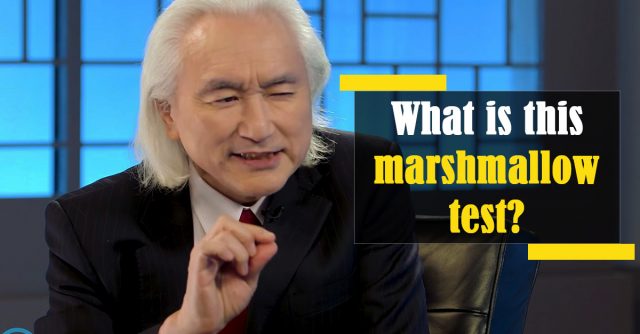What in your opinion is the is the secret combination to a successful and fulfilling life?
There are thousands of theories out there about what makes a human being, a child to be successful in life, but it seems to me that not all of them have the power to tell us the truth. Not all of them are verified.
However, in the early 70s, there was one experiment that specifically peeked the interest of the general public.
A Stanford professor named Walter Mischel began conducting incredibly interesting and eye-opening series of psychological studies than revealed some of the best qualities in people that can be crucial to achieving success.
The well-known “marshmallow experiment”.
It all began with bringing a child into a private room and placing one single marshmallow in front of them. At this point, the child was offered a sweet deal.
To eat the marshmallow while the researcher was away, or to hold on and be rewarded with a second marshmallow later.
As expected, most of the kids jumped up and at the first marshmallow as the researcher closed the door. Other’s bounced and kept twitching in an attempt to restrain themselves but eventually gave up into the temptation.
Surprisingly, only a few of the children managed to wait the entire time.
So, what does this tell us?
The study was originally published in 1972, but the interesting part came many years later.
The researchers followed each child for more then 40 years and came to an eye-opening conclusion that the children who had the nerve to delay gratification in order to earn another marshmallow grow up as successful people with higher SAT scores, lower levels of substance abuse, better responses to stress, lower divorce rate and better social skills.
And that is exactly what Michio Kaku, a world-renowned physicist talked about in a recent interview.
He elaborated on the true meaning of life, the highway to success and associated his philosophy with the most accurate study of all times – “The marshmallow experiment”.
He explained that most of the people out there usually tend to go for the shortcut in life instead of the rocky, unpaved, risky highway to success.
And most of these people were once kids who were raised to avoid the shortcut and go for the quick kill instead. Those were probably the same kids that weren’t capable of restraining themselves from eating that first marshmallow.
However, not all of us would be so naïve to go for a quick kill. Some individuals dare to delay their gratification with a hope for a better result in the future.
Because, according to Kaku, the thing that makes us humans different from the animals is our brain. The fact that we understand time. The fact that we understand ‘the concept of tomorrow’.
“The point is, we have the ability to see the future. That’s what we humans do that animals cannot. We constantly daydream. We constantly create worlds that don’t exist. And to me that’s what intelligence is.” says Kaku.
So, when some of these people are faced with this kind temptation, they say to themselves “Now wait a minute, if a wait two hour I can get two march mellows, I can hold out, there’s a pot of gold waiting for me.”
“If I really want this to work, I won’t let anything distract me from achieving it.”
What’s important here to understand is that, if you truly want to succeed at something and achieve your deepest goals, at some point you’ll find the ability inside yourself to remain disciplined and take action towards success.
And even if you’re not feeling that you are good at delaying gratification, you can do anything in your power to train yourself and become a better person. By promising something small and then delivering in order to get the bigger thing on the list.
As Kaku said, “The meaning of life is self-discovery. We have to reinvent ourselves. We have to recreate ourselves. The meaning of life is rediscovery. Reimagine tomorrow.”


